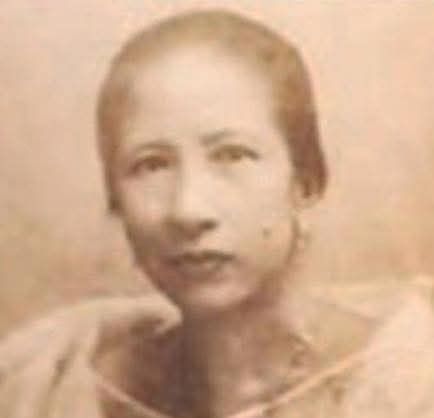The Constantino Foundation, a renowned organization, encourages everyone to watch the film "Lakambini Gregoria de Jesus," a film, dubbed as a meta docufiction directed by the award-winning filmmakers Jeffrey Jeturian and Anjarmar Rebeta for Pelikulove of female movie, TV and multimedia director Ellen Ongkeko-Marfil.
A celebrated individual, Cardinal Pablo Virgilio David of Caloocan City and President of the Catholic Bishops Conference of the Philippines (CBCP) also endorses and requests the moviegoing public to watch the film.
According to Cardinal Ambo David, "Lakambini Gregoria de Jesus" is a film and history that refuses to stay silent.
Here's Cardinal David's manifesto: "I must confess, when I sat down to watch Lakambini, I thought I was merely revisiting a historical figure I already admired—Gregoria de Jesús, the Lakambini ng Katipunan, wife of the Supremo. But I wasn’t prepared for what the film stirred in me. It felt less like watching history and more like being confronted by history by the unfinished work of a nation still struggling to rise from betrayal and broken dreams.
"Bakit ako interesado sa pelikulang ito (Why am I interested in this film)? Dahil tubong Kalookan si Oryang *Because she is from Caloocan), and I am presently the bishop of Kalookan. Ang Kalookan, para sa akin ay 'bayan ng mga bayani' (for me 'is a pantheon of heroes'—and now, painfully, also bayan ng mga dukha, at simbahan din ng mga dukha (a place of the poor, and the church of the poor). Our diocese became ground zero during the darkest days of the drug war. And in those years, I met women who reminded me of Oryang—widows like Mary Ann and Grace, who suffered from senseless violence, fought for justice, went back to school, rebuilt their lives, and stood courageously for truth. Mga bagong Lakambini (New Muses) of our times.
"Gregoria de Jesús represents something deeply Filipino—gentle but steel-strong, wounded yet unbroken, open to love yet never forgetting loyalty to truth and justice. The film returns her voice to us: not as a footnote to Bonifacio, but as a storyteller who carried the nation’s memory when powerful men tried to bury it.
"Renato Constantino taught us that history is not just a matter of narrating facts (salaysay) but an earnest effort to make sense of it, to interpret events or find meaning (saysay) in them for the future. "That is what this film invites us into: not just recalling events, but interpreting them, giving them meaning, allowing them to question us
"And for me, the most powerful moment in the part I watched was not the uprising, nor even Bonifacio’s death—but a quiet scene. Oryang hears in 1935 that Aguinaldo has lost the presidential election to Manuel Quezon. She chews slowly, looks out not to a battlefield but to memory, and spits — not in anger, but in vindication. And she whispers a line from Scripture:
“'Walang nalilihim na hindi mabubunyag'.”
Nothing concealed will not be revealed.
"I almost fell off my chair—because that line is exactly how I began our CBCP pastoral statement on the flood-control corruption scandal. History has a way of catching up. Truth has a way of resurfacing. And nations, like people, cannot heal what they refuse to face.
"We Filipinos, sadly, forget too easily. We sweep blood and betrayal under the rug. No wonder our revolutions rarely conclude. The Philippine Revolution—unfinished. The EDSA Revolution—unfinished. And yet, like Oryang, we rise again, remembering the fallen, gathering the broken pieces, starting anew.
"In the film, Oryang does not end as a tragic widow. She marries again--to Julio Nakpil, loyal friend of Bonifacio—and rebuilds a quiet life. This is not a weakness. This is resilience. Pagbangon na may dignidad. A revolution not of swords, but of memory and hope.
"That is the hidden power of this film. It is not explosive, but contemplative. Not triumphant, but truthful. Mabagal ang (Slow) pacing, hindi pang-(not for) mainstream—yet that is its gift. It forces us to sit with the story. To wrestle with the betrayal. To feel the ache of unfinished dreams. And in that discomfort, we remember who we are—and who we might still become.
"Someone once told me, 'I believe in happy endings. If it is not happy, maybe it’s not yet the end.' That line has guided much of my ministry. It applies to Oryang. To Bonifacio. To EDSA. To every mother who lost a son but chooses courage over hatred. To every young Filipino who refuses to give up on democracy.
"To our nation.
"Our story is not done. The march of September 21, 2025—the Trillion-Peso March—reminded us of that. May natutulog na diwa na muling nagigising (There are sleeping giants who will wake up). And the youth are at the forefront.
"So, I invite our young Filipinos: watch Lakambini. Listen to Oryang. Let her story disturb you, inspire you, challenge you.
And then join the conversation—the one that revisits our past, not to romanticize it, but to finish what was started.
"The struggle for freedom did not end in 1897. Nor in 1986. It is alive in every act of truth-telling, every stand for justice, every story remembered and retold—until our nation finds its rightful ending.
"And maybe, just maybe, this time, we will finish the revolution."
#WeTakeAStand #OpinYon #OpinYonNews #CBCP #LakambiniGregoriadeJesus

